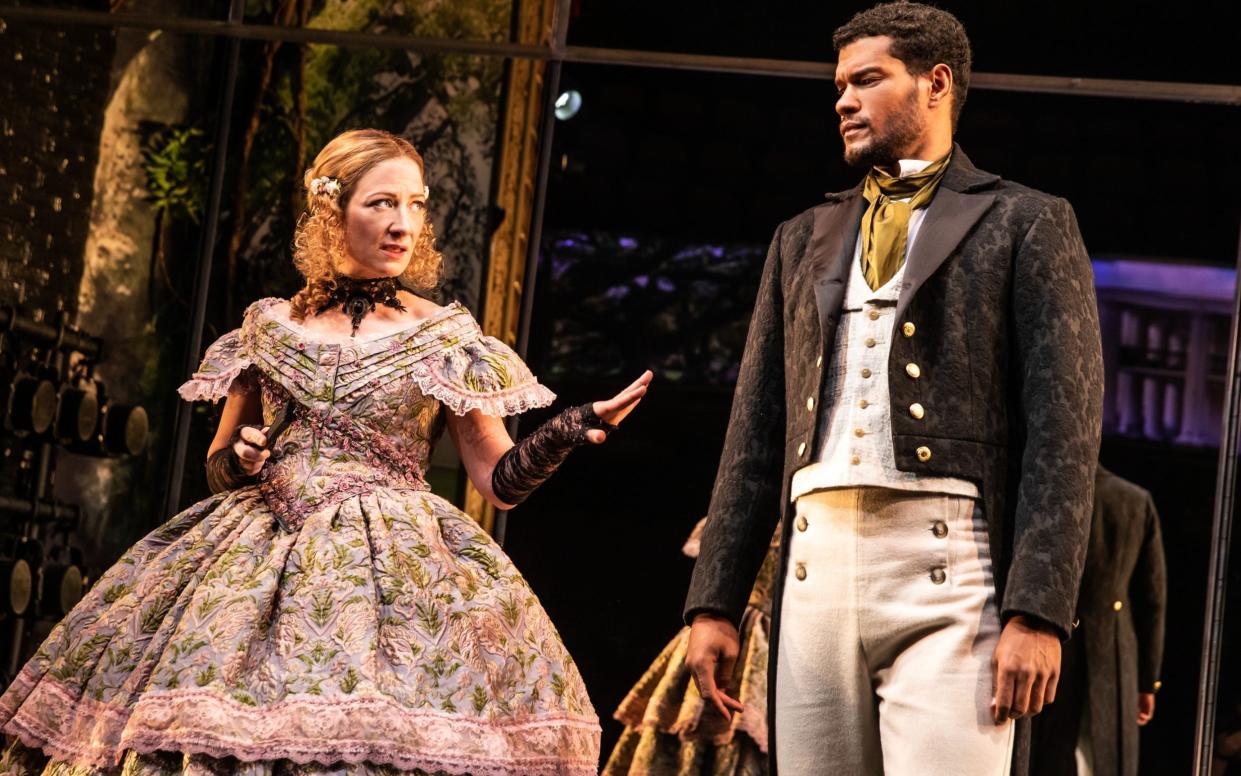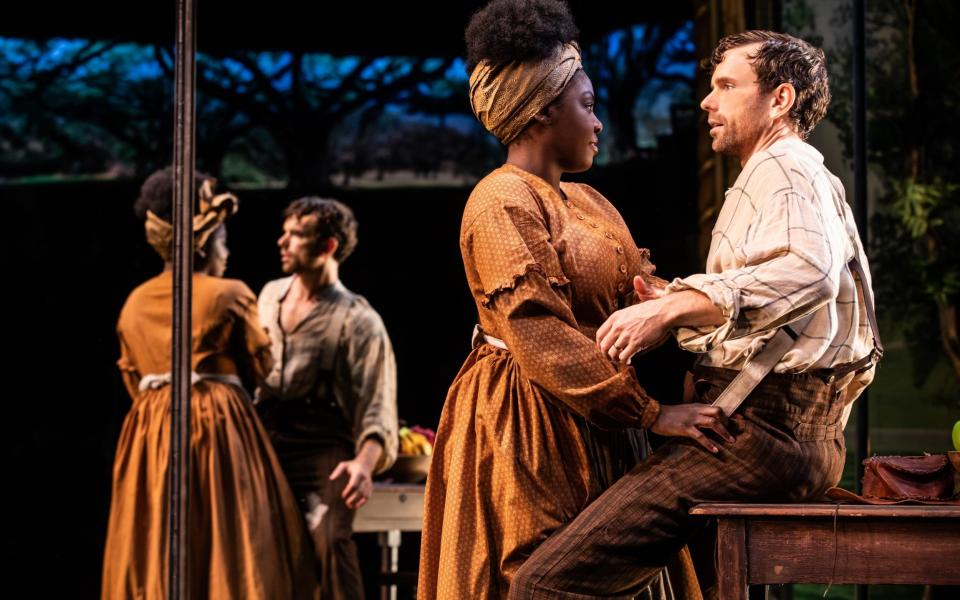‘The tension was amazing’: what do British audiences make of the controversial Slave Play?

“Is London ready for Slave Play?” asks the booking website for the London transfer of Jeremy O Harris’s drama about race, sexuality and the psychological legacy of slavery. It’s a good question. Slave Play is Broadway’s most critically admired show in decades (it has received the most Tony award nominations ever), but also the most divisive.
It’s hard to talk about the specific provocation of Slave Play without giving away a key plot point. Suffice to say it features three mixed race couples who undertake “antebellum” sex therapy in order to address, in each case, the black partner’s declining sexual interest, and trades on degrading images of black people, particularly black female sexual stereotypes, in ways that ask deeply uncomfortable questions about sexual desire and the inherited abuses of history.
The Broadway run was the subject of regular walk outs. Some people accused it of being racist against white people. Others accused the playwright, who is black and queer, of writing the play for white people, something that Harris has rejected. When it premiered at New York Theatre Workshop, before its Broadway transfer, a petition to close it was launched by a black woman who described the play as “disrespectful” in ways that left her “traumatised” and “offended” and which attracted 6,000 signatures.
The London production, which stars Kit Harington, and which began previews on Saturday, has also attracted complaints by announcing two “black out” nights, whereby black audiences are invited to experience the play “free from the white gaze”. A similar performance took place in New York and more than 800 black people turned up, making the audience 99 per cent black. The producers have also clarified that no audience member will be turned away after Rishi Sunak joined the chorus that sprung up in some quarters to condemn the move as racist and divisive. In addition, theatregoers are being offered self-care tips in order to deal with the explicit themes. It all adds to the play’s sizzling air of controversy.
So is London ready? On the first night of previews, the auditorium was nearly full – not bad given it was one of the first hot nights of the summer and the Euros are well underway (although the box office appeal of Harington may have something to do with it). At a rough guess, the audience was about 30 per cent black. There were no walkouts. The atmosphere felt attentive and supportive.

After the show, those I spoke to offered wildly differing opinions. A middle-aged white woman, who loved it, said she thought the tension within the audience was “incredible”. A couple in a mixed-race relationship sitting next to me had known nothing about the play before booking it, and found the evening surprising and unsettling in a positive way. “I’m Indian and Rowan is Irish so there was a lot about the power dynamics within the couples that resonated,” said Arti, 41.
Another theatre-goer, who is American and black, and who saw the play twice in New York agrees. “Some people find it hard to believe that a black woman would [want to behave] in the way we see on stage,” she says. (It would be a spoiler to reveal what she is referring to but there is no doubt that the final scene is extremely challenging.) “They find it hard to wrap their heads around it. Part of the play is asking what it means to listen to another person when you find what you are hearing hard to reconcile with how you want to feel about yourself.
“But I feel the audience tonight has received it differently than in New York. On Broadway people tended to make it about themselves; their attitude was ‘I wouldn’t behave like that, or I’m not like this, or that’.”
Quite a few audience members who I spoke to said they needed more time to “process” the play before they could talk about what they thought. On the steps outside the theatre, though, a group of black British women who declined to give their names were clear about what they thought. One said: “My main feeling was: you are not telling us anything new as black people,” said one. “I went with an open mind. But it was not shocking or controversial. I thought it was naive, rather than offensive, as if we [as black people] don’t have any deep understanding of ourselves.”
The group said they would be interested in going to one of the all-black performances. “I would like to be in an audience of black people to see their reaction. Today it was quite muted because the audience was mostly white.”
Everyone I spoke to agreed that the play’s conceptual daring and racial provocations would prompt fierce conversations. “We’ve become accustomed to art that offers recognition,” said one woman. “Slave Play does that but it also f––s with that recognition.” London, over to you.
Slave Play is at the Noel Coward Theatre until Sep 21. Info: slaveplaylondon.com

 Yahoo News
Yahoo News 
